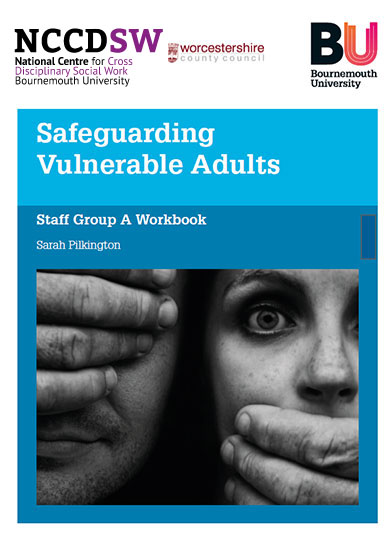Safeguarding adults is a vital aspect of health and social care practice, as it aims to protect the rights and well-being of people who are at risk of abuse or harm. However, safeguarding practice can vary widely across different settings and regions, leading to inconsistent outcomes and experiences for service users and carers. To address this issue, we have been involved in developing a national framework for safeguarding adults, as well as various resources and tools to support its implementation. In this blog post, we will share our journey and achievements so far.
The Origins of the National Capabilities Framework for Safeguarding Adults
The idea of creating a national framework for safeguarding adults emerged in 2010, when Learn to Care, a national organisation for workforce development in social care, commissioned us to conduct research on the quality and standards of safeguarding practice across England and Wales. We are Di Galpin (Senior Lecturer, Safeguarding Adults) and Lucy Morrison (Research Assistant) from the Centre for Post Qualifying Social Work at Bournemouth University.
We undertook a comprehensive review of the existing evidence and practice on safeguarding adults, including CQC inspection reports, serious case reviews, academic research, focus groups and interviews with professionals and managers, and feedback from service users and carers. We identified the key areas of practice that were failing or lacking in safeguarding adults services, such as assessment, intervention, partnership working, communication, recording, supervision, and training.
We also drew on the work already done by East Sussex County Council, Brighton and Hove City Council and Lambeth Safeguarding Adults Partnership, who had developed their own local frameworks for safeguarding adults. Based on our findings and their models, we developed the National Capabilities Framework for Safeguarding Adults, which outlines the knowledge, skills and values that practitioners need to demonstrate in order to deliver effective safeguarding practice.



The framework consists of six core capabilities:
- Understanding the principles of safeguarding adults
- Recognising signs of abuse or neglect
- Responding appropriately to situations of abuse or neglect
- Working in partnership with service users, carers and other professionals
- Recording and sharing information appropriately
- Reflecting on and improving practice
The Development of Supporting Resources and Tools
Following the success of the framework, we have continued to develop additional resources and tools to support its implementation and evaluation. In partnership with Worcestershire Social Services, we have created a workbook for unqualified health and social care staff who work with adults at risk of abuse or harm. The workbook helps them to understand their role and responsibilities in safeguarding adults, as well as to demonstrate good practice according to the framework.
We are also working on resources for qualified professionals who want to improve their practice and meet the requirements of the framework. Di Galpin is currently writing a workbook that covers the core capabilities in more depth and provides practical exercises and case studies. Di is also developing an online tool that enables practitioners to self-assess their practice against the framework and receive feedback and guidance. The tool is called the Safeguarding Adults Framework Evaluation tool (SAFE tool) and it is designed to be easy-to-use and accessible. Di is working with Emily Rosenorn-Lanng (Research Projects Officer) and Lucy Morrison in creating this tool.



The Future of Our Work
We are proud of our work on developing a national framework for safeguarding adults and its supporting resources and tools. We believe that our work contributes to enhancing the quality and consistency of safeguarding practice across England and Wales, as well as to empowering practitioners to develop their skills and confidence. We also hope that our work benefits service users and carers by improving their safety and well-being.
We are looking forward to completing our current projects and launching them soon. We are also keen to collaborate with other organisations and agencies that are interested in using or adapting our framework or tools for their own contexts. If you would like to know more about our work or get in touch with us.
